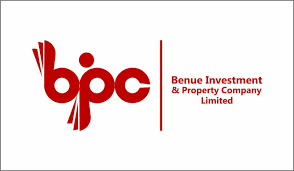Economy
Effective Controls Key to Investor Protection – SEC

By Tony Obiechina, Abuja
Effective internal controls over financial reporting has been described as necessary to help ensure that companies provide investors with accurate financial statements, which will in turn boost investor protection and confidence.
This was stated by the Executive Commissioner Legal and Enforcement of the Securities and Exchange Commission, Mr.
Reginald Karawusa during a training on Internal Controls over Financial Reporting, an implementation of Section -60-63 of the Investment and Securities Act 2007, organised by the SEC in collaboration with the Nigeria Capital Market Institute which commenced in Lagos, Monday.Karawusa stated that with the plethora of Ponzi schemes plaguing the nation, accurate financial statements are essential for the vitality of financial markets and by extension the economy.
The Executive Commissioner said, “Once investors no longer have confidence in the accuracy and completeness of companies’ financial statements and other disclosures, they will naturally be unwilling to invest, and the financial markets will certainly suffer as is currently experiencing in our country.
Karawusa noted that following the approval of the Framework, it became apparent that its implementation would require extensive improvements in the internal processes of some reporting entities leading to additional responsibilities placed on certain key persons within the entities. It was decided that efforts would be made to engage with companies and sensitize identified role holders on their responsibilities under the Framework.
“As you may recall, the outbreak of accounting scandals in the 1990s and corporate frauds of the early 2000s highlighted the need for the development of a coherent framework of systems of control and policies to identify, measure, mitigate and disclose risks.
According to him, “Securities regulators in a number of jurisdictions acted in lockstep with the United States by introducing requirements that would strengthen controls within companies and enhance the quality financial reports issued by such companies. In line with this global effort, the Federal Government provided under Sec. 61(1) of the Investment and Securities Act 2007 that “a public company shall establish a system of internal controls over its financial reporting and security of its assets and it shall be the responsibility of the board of directors to ensure the integrity of the company’s financial controls and reporting”.
“The International Organization of Securities Regulators (IOSCO) has noted that Internal Controls are intended to ensure fulfilment of corporate’s goals. They also ensure an efficient deployment of corporate resources and assets, avoiding and mitigating operational deviations that could affect business continuity and the achievement of company’s goals.
“Some of such boards lacked effective risk and audit committees, where members ought to have challenged management’s approach to risk. These officers neither have the means to ensure that board decisions and policies were effectively put in place let alone to scrutinize decisions collectively taken.
Karawusa disclosed that in response particularly to corporate scandals of the 1990s/early 2000s, the United States passed the Sarbanes-Oxley Act of 2002 which introduced significant auditing and financial regulations for public companies as safeguards to protect shareholders, employees and other stakeholders from accounting errors and fraudulent financial practices.
In his remarks, Managing Director of NCMI, Dr Emomotimi Agama said that the starting point to evaluate the sufficiency of an ICFR program should be with a financial statement risk assessment.
He said, “The risk assessment, which includes specific financial reporting objectives and identification of risks to achieving those objectives, answers these fundamental questions: Which controls are necessary to address the company’s risks? How many controls does the company need? What is “just enough” for the company’s ICFR program?
“A risk assessment that integrates the right people, processes, tools, and techniques serves to identify the relevant risks of material misstatement (ROMMs). The risk assessment also includes the selection of controls and the evaluation of the design of the control, It’s through the risk assessment process that a company can report with confidence the number and types of controls necessary to have an effective ICFR system.
Agama said Management’s focus on ICFR should start with determining whether the company’s risk assessment process is sufficient to identify and assess the risks to reliable financial reporting, including changes in those risks.
He listed proactive steps management can consider to include: Refreshing the risk assessment program to incorporate the right people, processes, and technologies to unlock the hidden value. Integrating data analytics and visualization to improve the quality of the data analysed to support robust risk identification and report results succinctly to key stakeholders. This, in turn, can rationalize risks of material misstatement to a level of granularity to focus on what could truly be a material misstatement.
“In all of this, Education is essential and the essence of this program is to provide that education to helps companies comply with Sec 60-63 of the ISA 2007” Agama added.
Economy
Customs Zone D Seizes Contraband Worth N110m

The Nigeria Customs Service (NCS), Federal Operation Unit (FOU), Zone D, has seized smuggled goods worth over N110 million between April 20 till date.
The Comptroller of Customs, Abubakar Umar, said this at a news conference on Tuesday in Bauchi.
He listed the seized items to include 11,200 litres of petrol; 192 bales of second hand clothing, 140 cartons of pasta, 125 pairs of jungle boots, 47 bags of foreign parboiled rice and 9.
40 kilogramme of pangolin scales.Umar said the items were seized through increased patrols, intelligence-led operations, and strengthened inter-agency collaboration.
The comptroller said the pangolin scales would be handed over to the National Environmental Standards and Regulations Enforcement Agency (NESREA) for appropriate action, while the seized petrol would be auctioned, and the proceeds remitted to the federation account.
He attributed the decrease in smuggling activities of wildlife, narcotics, and fuel to the dedication and professionalism displayed by the personnel in line with Sections 226 and 245 of the NCS Act 2023.
The comptroller enjoined traders to remain law abiding, adding the service would scale up sensitisation activities to combat smuggling.
“We remain resolute in securing the borders and contributing to Nigeria’s economic development,” he said.
The FOU Zone D comprises Adamawa; Taraba, Bauchi, Gombe, Borno, Yobe, Plateau, Benue and Nasarawa. (NAN)
Economy
Trade Tensions: Global Economy Stands at Fragile Turning Point -UN

The UN Department of Economic and Social Affairs (UN DESA) has said that the global economy stands at a fragile turning point amid escalating trade tensions and growing policy uncertainties.UN DESA, in a report published on Thursday, stated that tariff-driven price pressures were adding to inflation risks, leaving trade-dependent economies particularly vulnerable.
It stated that higher tariffs and shifting trade policies were threatening to disrupt global supply chains, raise production costs, and delay key investment decisions – all of this weakening the prospects for global growth. The economic slowdown is widespread, affecting both developed and developing economies around the world, according to the report.For instance, in the United States, growth is projected to slow “significantly”, as higher tariffs and policy uncertainty are expected to weigh on private investment and consumer spending.Several major developing economies, including Brazil and Mexico, are also experiencing downward revisions in their growth forecasts.China’s economy is expected to grow by 4.6 per cent this year, down from 5.0 per cent in 2024. This slowdown reflects a weakening in consumer confidence, disruptions in export-driven manufacturing, and ongoing challenges in the Chinese property sector.By early 2025, inflation had exceeded pre-pandemic averages in two-thirds of countries worldwide, with more than 20 developing economies experiencing double-digit inflation rates.This comes despite global headline inflation easing between 2023 and 2024.Food inflation remained especially high in Africa, and in South and Western Asia, averaging above six per cent. This continues to hit low-income households hardest.Rising trade barriers and climate-related shocks are further driving up inflation, highlighting the urgent need for coordinated policies to stabilise prices and protect the most vulnerable populations.“The tariff shock risks hitting vulnerable developing countries hard,” Li Junhua, UN Under-Secretary-General for Economic and Social Affairs, said in a statement.As central banks try to balance the need to control inflation with efforts to support weakening economies, many governments – particularly in developing countries – have limited fiscal space. This makes it more difficult for them to respond effectively to the economic slowdown.For many developing countries, this challenging economic outlook threatens efforts to create jobs, reduce poverty, and tackle inequality, the report underlines. (NAN)Economy
FG To Finalize N1.5trn Road Concession Project- Edun

The Minister of Finance and Coordinating Minister of the Economy, Mr Wale Edun, says the Federal Government will soon finalise N1.5 trillion road concession project.
Edun made the statement during a meeting with some private sector investors in Abuja on Wednesday.
He said that the government was on the verge of finalising the landmark N1.
5 trillion road concession project, launched in 2021 under the Highway Development and Management Initiative (HDMI).The minister said that the initiative aimed to involve private sector partners in the reconstruction and management of nine major highways across the country, spanning approximately 900 kilometers.
He said that the partners had almost completed all arrangements for the highways, which they would finance, rebuild, and maintain under 25-years concession agreements.
Edun said that the concessionaires were expected to recoup their investments through tolling fees.
“We met the concessionaires who have virtually concluded all the agreement arrangements for nine roads, nine major highways, which they are contracting to refinance the rebuilding of and to recover their funds from tolling fees under 25-year or so agreements.
“And we met them to iron out the remaining administrative obstacles for the kicking off construction of these roads,” he said.
Edun said that the substantial private sector investment would bridge budgetary gaps.
He added that it would also allow investors to undertake revenue-generating projects, leveraging their expertise and resources for long-term implementation and maintenance.
“Thereafter, it will be a question of signing the addendums and moving to the site.
“As you know, already the 125-kilometer Benin–Asaba Highway concession agreement has been signed. The addendum has been signed.
“All arrangements have been finalised, in fact, the ministry of works have handed over the road to the concessionaires.
“They have already started the preliminary arrangements for reconstruction of that road in place of a 10 lane highway.
“It is an investment, it’s a project and an initiative that will reduce the travel time between Benin and Asaba right up to the Niger Bridge,” the minister said.
Edun said that the Benin–Asaba Highway project, which has already commenced, is expected to reduce travel time between Benin and Asaba from four hours to one hour, significantly enhancing productivity and efficiency in the region.
He described the HDMI, launched in 2021, as a strategic programme by the federal government aimed at attracting private sector investment to improve Nigeria’s federal road network.
Edun said that the initiative seeks to address the challenges of inadequate funding and maintenance by leveraging Public-Private Partnerships (PPP) to develop and manage road infrastructure.
Under the HDMI, 12 highways were initially selected for concession, covering a total of 1,963 kilometers.
These roads include Benin–Asaba, Abuja–Lokoja, Kano–Katsina, Onitsha–Owerri–Aba, Shagamu–Benin, Abuja–Keffi–Akwanga, Kano–Shuari.
Others are Potiskum–Damaturu, Lokoja–Benin, Enugu–Port Harcourt, Ilorin–Jebba, Lagos–Ota–Abeokuta, and Lagos–Badagry–Seme roads.
The minister said that the initiative was projected to generate over 50,000 direct and 200,000 indirect jobs, contributing significantly to the country’s economic growth and development.
The Minister of Works, Engineer David Umahi who joined the meeting virtually reassured the private sector partners on the HDMI of the federal government commitment.
He said that everything possible would be done to resolve the contending issues, adding he will soon be back to address all pending issues.
One of the concessionaires, Mr Kola Karim, representing Shoreline, emphasised the need for right and enforceable documents stipulating the takeoff and handover dates, which would attract investors to invest their funds.
Other private sector partners also requested for the addendum to the original agreement to be signed that would enable toll sections of the completed highways while work was in progress on other sections.
They noted that each concessionaire has unique challenges that should be dealt with accordingly.
Also in the meeting were Minister of Budget and Economic Planning, Abubakar Bagudu, and the Director General Infrastructure Concession and Regulatory Commission (ICRC), Dr Jobson Ewalefoh
























